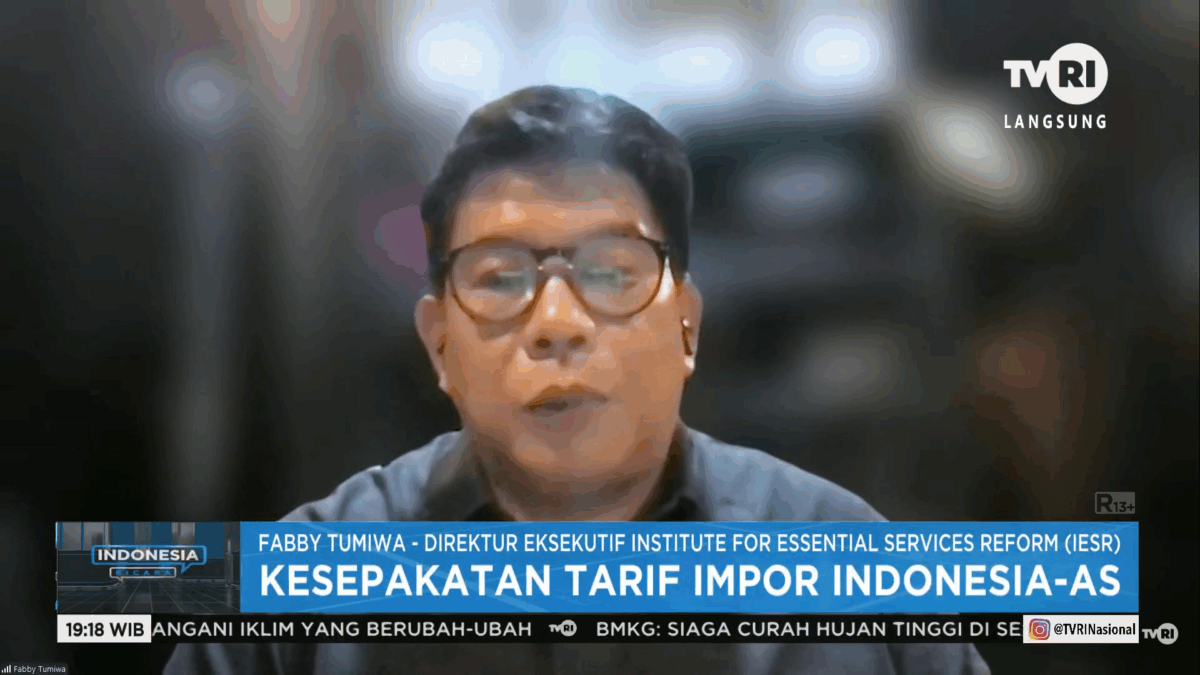Jakarta, July 17, 2025 – Indonesia received a 19% reciprocal tariff from the United States. This tariff was achieved after negotiations. The United States previously announced that Indonesia would be subject to a 32% tariff on its products exported to the United States. As part of the offer for this tariff reduction, the United States can sell its products to Indonesia at a 0% tariff. Agricultural commodities, energy, and aircraft are among the US products entering the Indonesian market.
Fabby Tumiwa, CEO of IESR, said at the Indonesia Bicara | Indonesia-US Import Tariff Agreement event that the government needs to make the agreement’s considerations and calculations public.
“The economic modeling created (by the negotiating team) should be made public, as the implications of this agreement’s impact on the burden borne by the public, such as the country’s fiscal burden or programs to address economic weaknesses arising from this trade agreement, must be considered.”
Specifically, Fabby also highlighted the potential impact of this agreement, namely, regarding energy security, Indonesia will have to purchase LNG from the United States. Indonesia currently meets its gas needs by purchasing from several sources, including the Middle East (Qatar) and Australia.
Gas reserves are calculated based on delivery times. Purchasing gas from the United States will increase delivery times, requiring Pertamina to recalculate its gas reserve requirements. Furthermore, Indonesia’s long-term gas purchase contracts with its partners are also potentially impacted by adjustments to purchase volumes.
Eko Listiyanto, Director of the Institute for Development of Economics and Finance (INDEF), sees the potential for a decline in Indonesia’s economic growth from this agreement, given the sluggish US market.
“According to IMF projections, US economic growth this year will only be around 1.8%, down from 2.8% the previous year. This means demand from American consumers will decline and could impact our exports,” said Eko.

